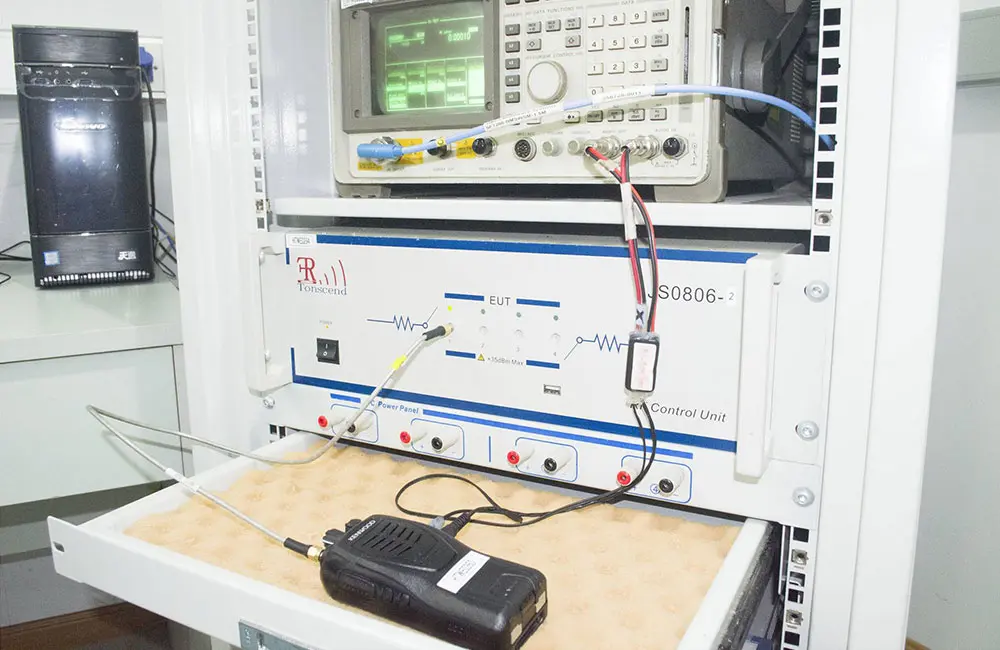
Vacuum Cleaner SIRIM Certification
The sirim certification (Standards and Industrial Research Institute of Malaysia Certification) ensures that products comply with Malaysia's safety, performance, and environmental standards. For vacuum cleaners, the primary purpose of SIRIM certification is to verify electrical safety, electromagnetic compatibility, and compliance with Malaysian regULations, thereby protecting consumer rights and enhancing market competitiveness.

Standards for Vacuum Cleaner SIRIM Certification:
1. Electrical Safety Standards:
- Standards such as MS 148 (safety standards for household appliances) and MS 153 (safety requirements for electrical equipment) apply.
2. Electromagnetic Compatibility Standards (EMC):
- Tests ensure that electromagnetic radiation generated during normal operation does not exceed permissible limits, avoiding interference with other devices. Stability and resistance to external electromagnetic interference are also tested.
Key Testing Components of Vacuum Cleaner SIRIM Certification:
1. Electrical Safety Tests:
- Verifies compliance of electrical components with safety standards, including:
- Withstand voltage tests
- Leakage current tests
- Insulation performance tests
2. Electromagnetic Compatibility (EMC) Tests:
- Evaluates electromagnetic emissions and interference resistance to ensure:
- The device does not interfere with other equipment.
- It operates normally in complex electromagnetic environments.
SIRIM Certification Process for Vacuum Cleaners:
1. Application and Preparation:
- Applicants prepare detailed product information, including:
- Product manuals
- Design documents
- Quality management system documents (e.g., ISO 9001 certification)
- Fill out the SIRIM certification application form.
2. Submission of Application:
- Submit the prepaRED materials to the SIRIM certification body in Malaysia.
3. Preliminary Evaluation:
- The certification body conducts an initial review to ensure compliance with requirements.
4. Laboratory Testing:
- Designated laboratories conduct emc testing, including:
- Conducted emission tests
- Immunity tests
- Electrical safety tests are also conducted to ensure component safety.
5. Report Review:
- The certification body reviews the laboratory test reports to confirm compliance with certification standards.
6. Decision and Certification:
- Based on the evaluation and review, the certification body issues the SIRIM certification certificate.
7. Annual Surveillance:
- The certification body conducts annual supervision to ensure ongoing compliance.
Required Documentation for SIRIM Certification:
1. Product Manual:
- A detailed description of the product's features, usage, operation methods, and safety precautions.
2. Design Documents:
- Including design drawings, circuit diagrams, and material lists.
3. Quality Management System Documentation:
- E.g., ISO 9001 certification or relevant documentation proving a robust quality management system.
4. Other Relevant Documents:
- Product test reports, certification application forms, etc.
Costs of Vacuum Cleaner SIRIM Certification:
The cost of SIRIM certification typically ranges between USD 1,200 to USD 3,100, depending on the product's specifics and the complexity of the testing. Costs generally include:
- Application fees
- Testing fees
- Certification fees
- Annual surveillance fees
Timeline for SIRIM Certification:
The certification process generally takes around 3–4 weeks. However, factors such as complex testing requirements or heavy workload at the certification body may extend the timeline.
Email:hello@jjrlab.com
Write your message here and send it to us
 Accelerated Ageing Test
Accelerated Ageing Test
 IP Ingress Protection Testing
IP Ingress Protection Testing
 How Does a Product Get an Energy Star Label
How Does a Product Get an Energy Star Label
 Is ROHS part of UL the same
Is ROHS part of UL the same
 What is Protection Class EN 60529?
What is Protection Class EN 60529?
 IP69 Certified Protection
IP69 Certified Protection
 California Energy Commission Testing Lab
California Energy Commission Testing Lab
 What Does the Canadian IC Mark Mean?
What Does the Canadian IC Mark Mean?
Leave us a message
24-hour online customer service at any time to respond, so that you worry!




